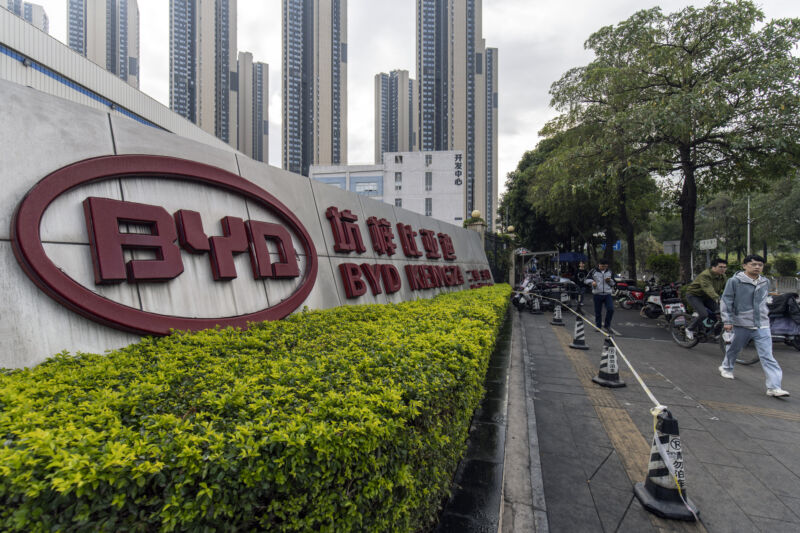
Qilai Shen/Bloomberg via Getty Images
The Chinese automaker BYD—which stands for Build Your Dreams—is on something of a roll. Last year, it sold more than 3 million cars, including 1.4 million hybrids and another 1.6 million battery-electric vehicles. It even sold more BEVs in China than Tesla in the final three months of 2023, helped by the fact that its larger portfolio of vehicles includes smaller and cheaper vehicles. Now, BYD is considering opening a plant in Mexico, according to Nikkei Asia.
Although most of BYD’s sales are in China, the automaker has more global ambitions. Factories are in various stages of planning or construction in Thailand, Hungary, and Brazil, and now, BYD is studying the feasibility of a factory in Mexico, potentially in Nuevo Leon, or perhaps the Baijo region in the middle of the country.
Mexico isn’t a bad place to put a new car factory. The sector employs more than a million people, so there’s a skilled workforce in place already, and the country produces 3.7 million cars per year. Indeed, BMW, Kia, and Stellantis have all said they will make EVs in Mexico, and Tesla has indicated it could do the same.
But building vehicles in Mexico would also mean BYD could take advantage of the US-Mexico-Canada Agreement, which would allow it to keep its prices lower. That would be particularly advantageous if BYD plans to target the underserved lower end of the new car market.
And a vehicle’s final assembly must be in North America to take advantage of the new clean vehicle tax credit system, which was rewritten by the Inflation Reduction Act of 2022. BYD’s EVs may not necessarily qualify for the full tax credit, as other parts of the law make an EV ineligible, depending on where its battery contents were sourced or if its battery was made by a Chinese-owned company.
Some have called for those protections to be strengthened to protect existing US automakers. The Alliance for American Manufacturing has gone so far as to call for a change to the USMCA “to ensure companies headquartered in a non-market economy like China cannot set up a factory in Mexico or Canada to gain preferential treatment.”
And speaking about Chinese automakers last month, Tesla CEO Elon Musk said, “If there are no trade barriers established, they will pretty much demolish most other car companies in the world.”

